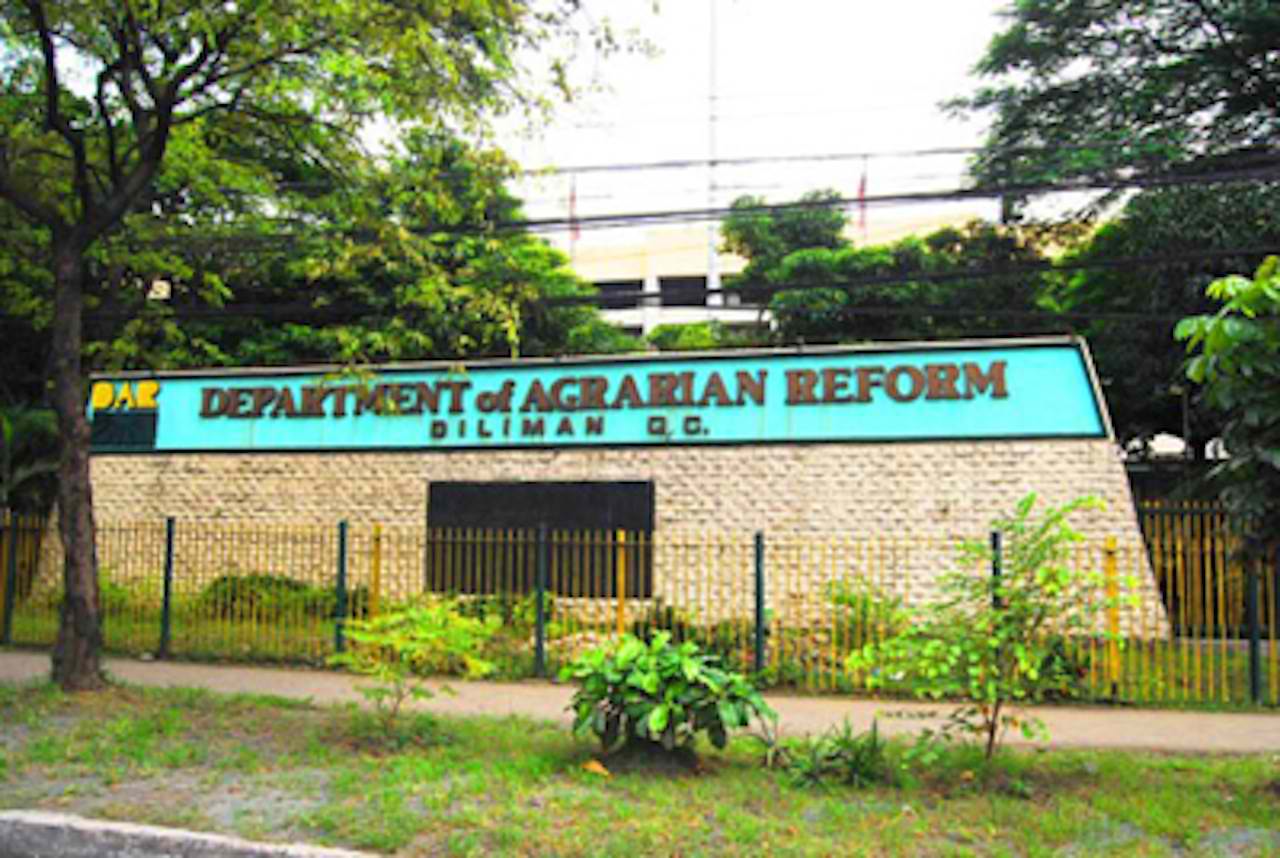DAR endorses Genuine Agrarian Reform Program
 QUEZON CITY, March 2 – “Congress should enact a new, comprehensive, and genuine agrarian reform law, which is thorough going and truly distributive, and would address the various problems on Land Acquisition and Distribution (LAD), security of tenure, and support services to the farmers” the Department of Agrarian Reform said.
QUEZON CITY, March 2 – “Congress should enact a new, comprehensive, and genuine agrarian reform law, which is thorough going and truly distributive, and would address the various problems on Land Acquisition and Distribution (LAD), security of tenure, and support services to the farmers” the Department of Agrarian Reform said.
This is the position of the DAR during the House Committee on Agrarian Reform hearing on House Bill No. 114 and 3051, both entitled “An act mandating the completion of LAD component of the CARP” last March 1.
The DAR stands that the pending legislative measures, which seek the continuation of land acquisition and distribution will not be enough to meet the pressing and basic needs of farmers. Instead, the DAR endorses the passage and approval of HB 555 as it would also rectify the problems encountered from previous agrarian reform laws and presently faced by agrarian reform beneficiaries (ARBs).
HB 114, introduced by Rep. Teddy Brawner Baguilat, and HB 3051, introduced by Rep. Kaka Bag-ao, Rep. Gabriel Bordado, and Rep. Tomasito Villarin propose the continuation and completion of land acquisition and distribution component of CARP.
While the bill seeks to remedy the failure of Comprehensive Agrarian Reform Program Extension with Reforms (CARPER) to cover landholdings, which in 2009 constitute the LAD balance of Republic Act 6657, the DAR suggests that the bills may not be adequate and will not include those landholdings that have not been issued Notices of Coverage (NOC) between June 30, 2014 and until the effectivity of law.
The proposed legislative measure will only cover 88,643 hectares that have not been issued NOCs and with no petitions for coverage from the beginning balance of 1.2 million hectares in 2009.
The DAR manifests, “if the purpose of these house bills is to place under coverage those which have not been touched by CARP or CARPER, then it is only reasonable to adopt a new law that would provide a much comprehensive LAD coverage and adequate period of implementation.”
Consistent with the present thrusts and policy directions of the DAR to protect the farmers, promote their rights and welfare, and contribute to rural development and food security, the DAR reiterates that the passage of HB 555 would not just extend the LAD component of CARP but it would place the remaining agricultural lands, both public and private, within the coverage of agrarian reform program.
The DAR explains that it is not a turnaround from the previous position to support the extension of the limit period of LAD, but a recognition and consideration to lessons from impediments encountered in the current agrarian reform program and not just LAD.
Aside from the shortcomings of CARPER on the non-distribution of lands, which is the central theme of pending legislative measures, problems do not cease after land is distributed as those who were already issued Certificates of Land Ownership Award (CLOAs) under the Comprehensive Agrarian Reform Law (CARL) like the farmers in Sanson Estate in Sara, Iloilo; the farmers in Nemesio Tan Estate in the Province of Capiz; the farmers in Hacienda Matias in the Province of Quezon, have been placed under non-land transfer schemes or agribusiness venture agreements (AVAs), in the case of Mindanao.
At its core, HB 555 seeks to implement the free distribution of agricultural lands in favor of farmers and at the same time would respect the rights of landowners to due process and just compensation.
“ARBs could hardly pay land amortizations that result to foreclosure of mortgage by the LandBank of the Philippines. Thus, it is now high time to free the farmers from the burden of paying amortizations and farmers can use the payment for amortization into making their agricultural lands productive,” DAR Secretary Rafael “Ka Paeng” Mariano said.
“It is necessary that the DAR supports measures that would not just guarantee the acquisition of additional lands for free distribution but also ensure the instillation of those lands to farmers, protection of their security of tenure, and fostering the improvement of land production and their well-being through sufficient support services,” said in the statement.
Problems identified by the DAR include the non-installation of ARBs to awarded lands; the failure of ARBs to pay land amortization with the LandBank of the Philippines; the cancellation of Emancipation Patents (EPs) and CLOAs; the transfer of awarded lands to third persons; the eviction of farmers from retained landholdings of the landowner; the conversion of agricultural lands into other uses, thereby threatening the country’s food security and self-sufficiency.
HB 555 would invalidate exemptions and exclusions of those lands previously exempted or excluded from agrarian reform coverage especially those cases under DOJ Opinion 44. The bill also ensures that farmers are not evicted from agricultural land they are tilling regardless whether they are ARBs, leaseholders, or plain possessors or occupants of agricultural lands.
Furthermore, other highlights of HB 555 are as follows: it provides that lands covered by agrarian reform program should not be used as security for loans incurred by farmers; it prohibits non-land transfer schemes in the form of AVAs; prime agricultural lands, irrigated or irrigable rice-lands should not be negotiable for conversion; and it provides for sufficient support services to the farmers, especially for the development of lands awarded.
During the House Committee hearing, Rep. Kaka Bag-ao recognized the concerns raised by the DAR chief and moved that a technical working group be created to revise the pending bill.
#DAR4Farmers #Land4Farmers #PartnerForChange
